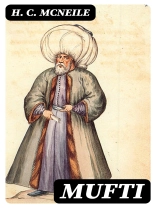In H. C. Mc Neile’s compelling novel ‘Mufti, ‘ readers are immersed in a thrilling blend of adventure and intrigue set against the vibrant backdrop of early 20th-century British India. Mc Neile employs a vivid narrative style, rich in detail and atmosphere, drawing from his experiences as a soldier during World War I and his extensive travels across India. The book intricately weaves themes of cultural conflict, loyalty, and the quest for justice, all while reflecting the complexities of colonial governance and societal norms of the time. H. C. Mc Neile, also known for his popular works featuring the character ‘Bulldog Drummond, ‘ showcases his deep understanding of military and colonial life through ‘Mufti.’ His personal experiences shaped not only his writing but also his keen awareness of the intricacies of human psychology in crisis situations. Mc Neile’s ability to encapsulate tension and camaraderie highlights his background as a keen observer of human nature and behavior, making him a sincere chronicler of his era. This novel is highly recommended for readers who appreciate historical fiction intertwined with action and moral dilemmas. Mc Neile’s adept storytelling not only entertains but also provokes critical thought about the colonial past, making ‘Mufti’ a relevant and enriching read for modern audiences.
Over de auteur
H. C. Mc Neile, better known by his pen name ‘Sapper’, was a prolific English author, celebrated for his adventure and thriller novels that captivated audiences in the early twentieth century. Born on September 28, 1888, in Bodmin, Cornwall, Herman Cyril Mc Neile served with distinction in the Royal Engineers during World War I, an experience that profoundly influenced his writing. Mc Neile began his literary career with stories based on his wartime experiences, which were published in the ‘Daily Mail’. His literary style is often characterized by its action-packed narrative, a clear-cut dichotomy between good and evil, and a touch of British patriotism, which resonated with his readers of the post-war period. Mc Neile’s creation of the character Bulldog Drummond became emblematic of the quintessential British hero and was featured in a series of bestselling books. ‘Mufti’, published in 1919, is one of Mc Neile’s notable works, differing slightly in style by exploring more nuanced character developments while still maintaining the brisk pace and dynamic storytelling that define Mc Neile’s oeuvre. His books have had a lasting impact on the thriller genre and remain significant as cultural artifacts of the interwar period. Mc Neile passed away on August 14, 1937, but his work continues to be studied and enjoyed for its historical value and its contribution to the literary landscape of adventure and crime fiction.












